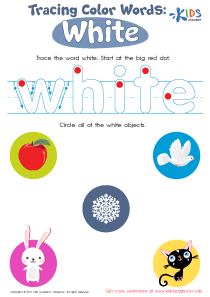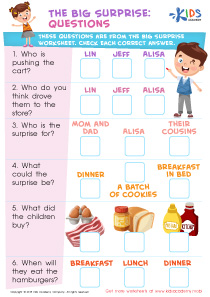Reading comprehension Grade 3 Grammar Worksheets
20 filtered results
-
From - To
Enhance your Grade 3 students' reading comprehension skills with our engaging grammar worksheets! Designed to support young learners, these worksheets present a variety of activities that help reinforce key concepts such as sentence structure, punctuation, and vocabulary. Each exercise encourages critical thinking and understanding, making reading fun and interactive. Perfect for classroom settings or independent practice at home, our resources are aligned with educational standards to ensure effective learning outcomes. Help your child develop a love for reading while mastering essential grammar skills! Browse our collection today and watch their confidence soar as they improve their comprehension abilities.
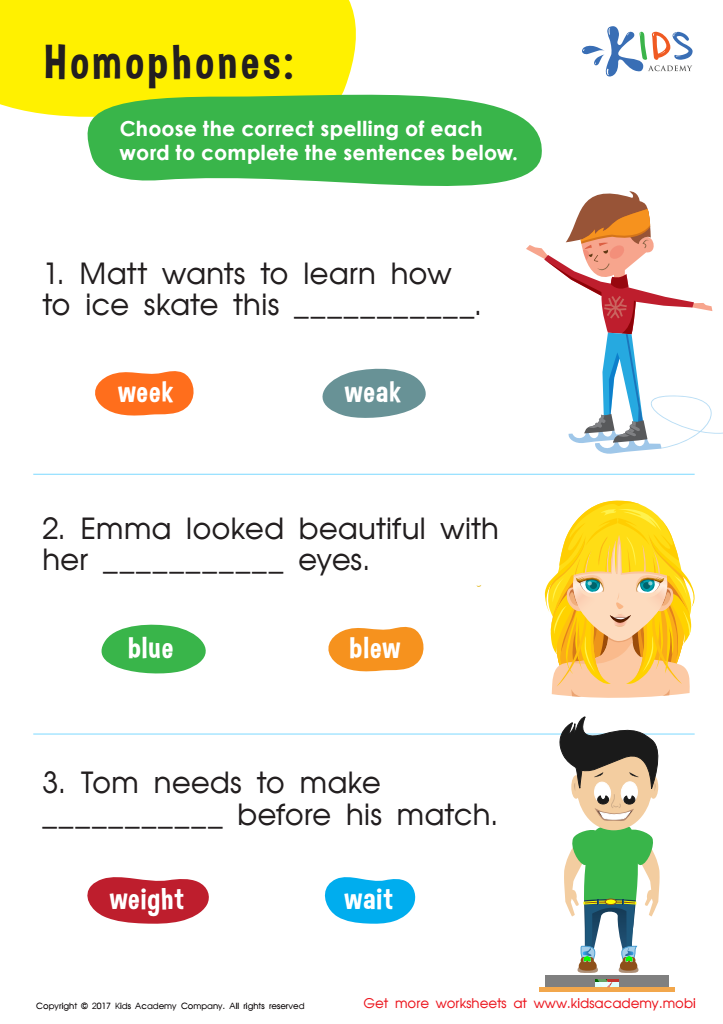

Homophones Ate/Eight Spelling Worksheet


Phonics and Word Recognition: Assessment 3 Worksheet
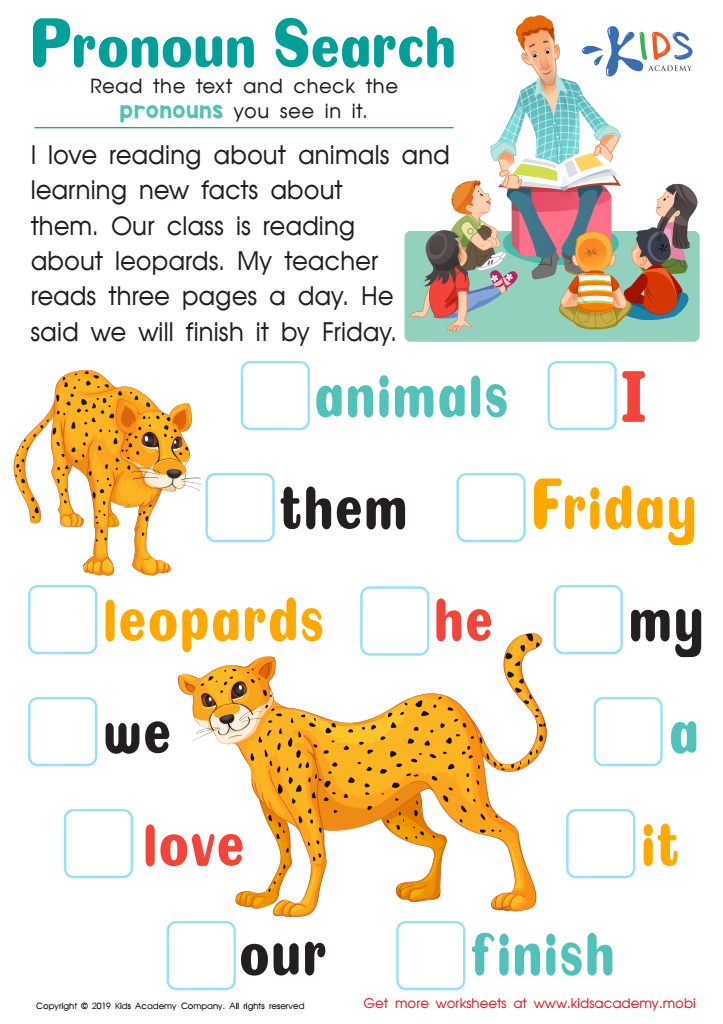

Pronoun Search Worksheet


Action! Worksheet
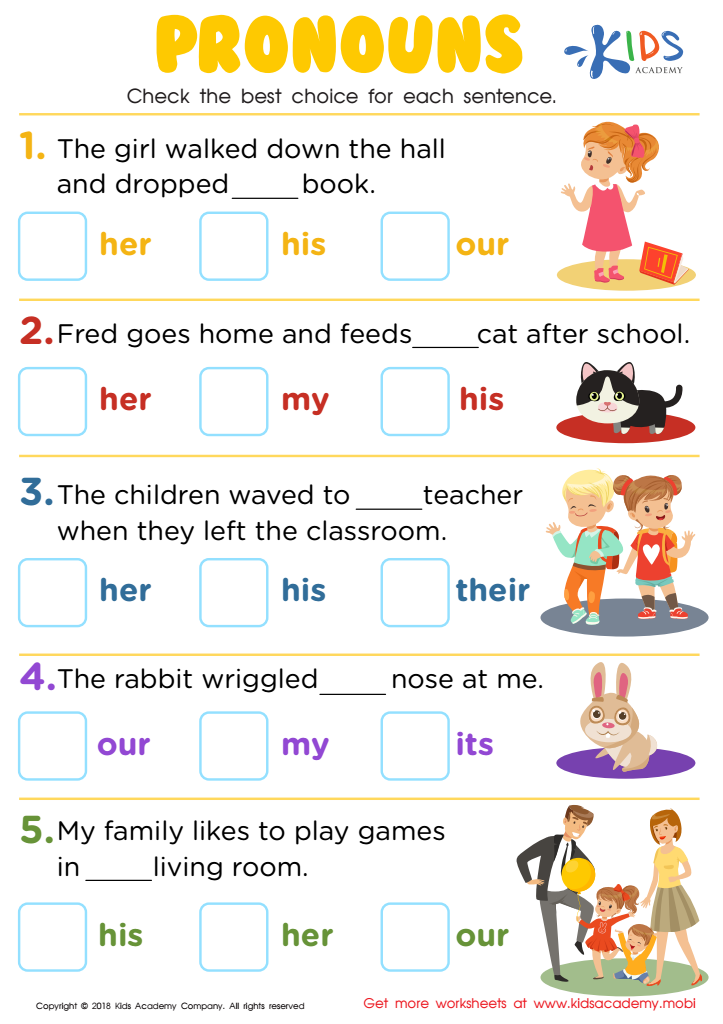

Pronouns Worksheet
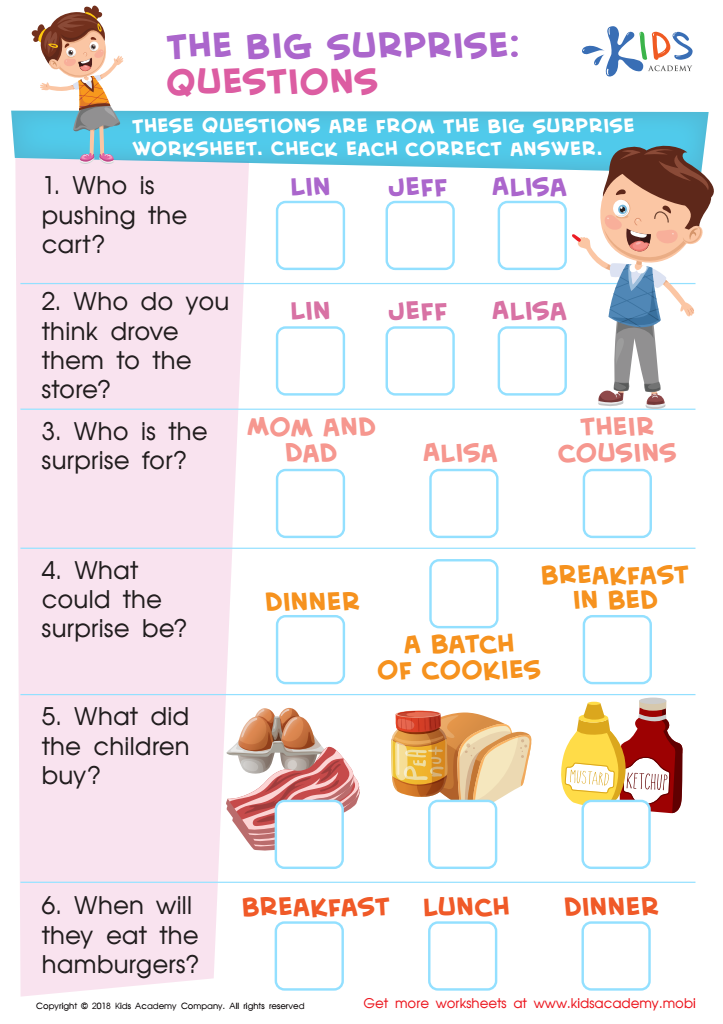

The Big Surprise: Questions Worksheet
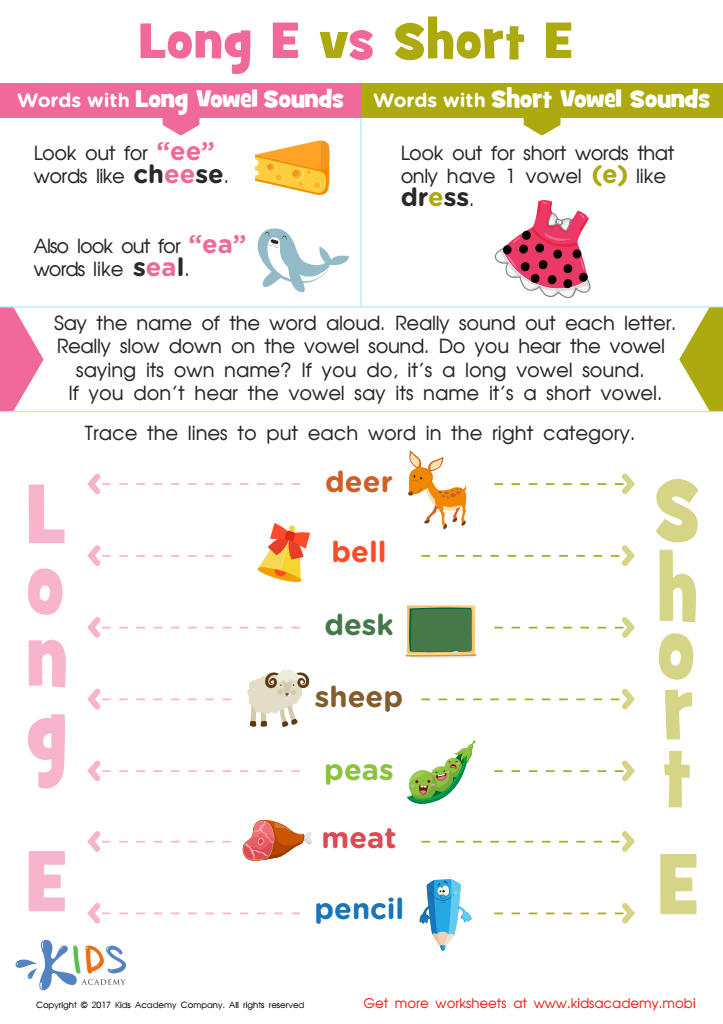

Long and Short Vowel E Spelling Worksheet
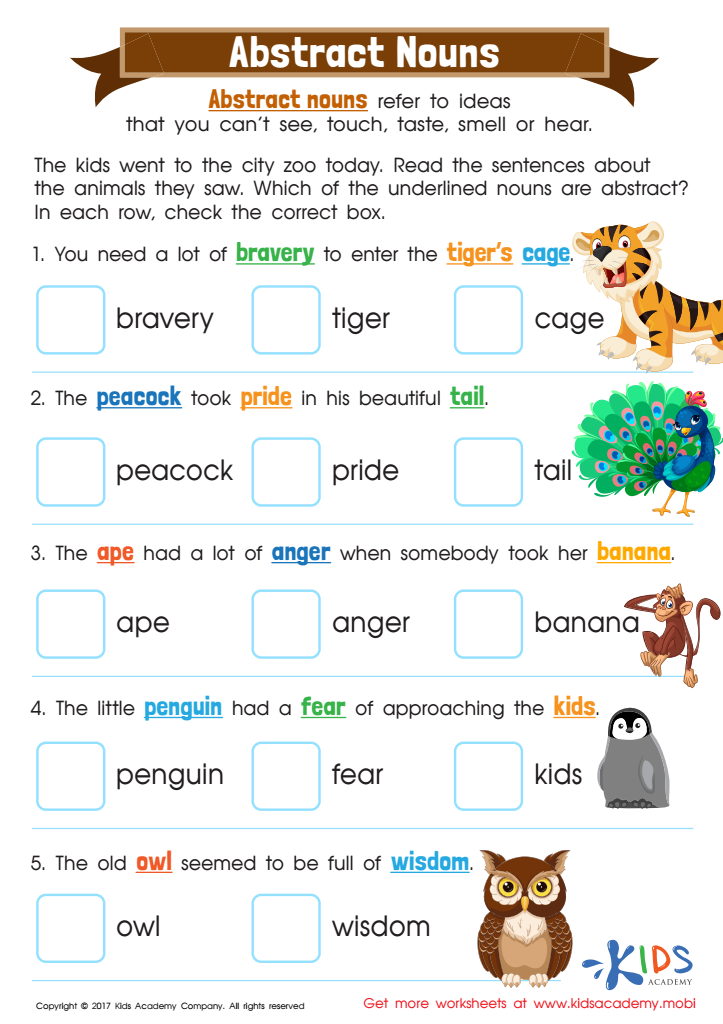

Abstract Nouns Worksheet
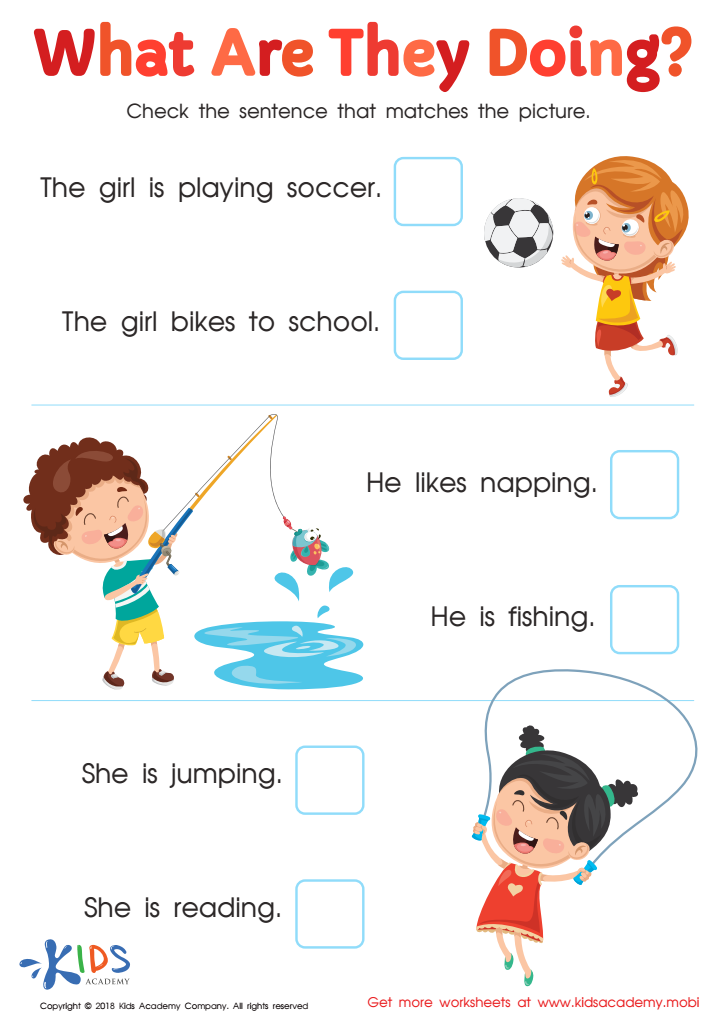

What Are They Doing? Worksheet
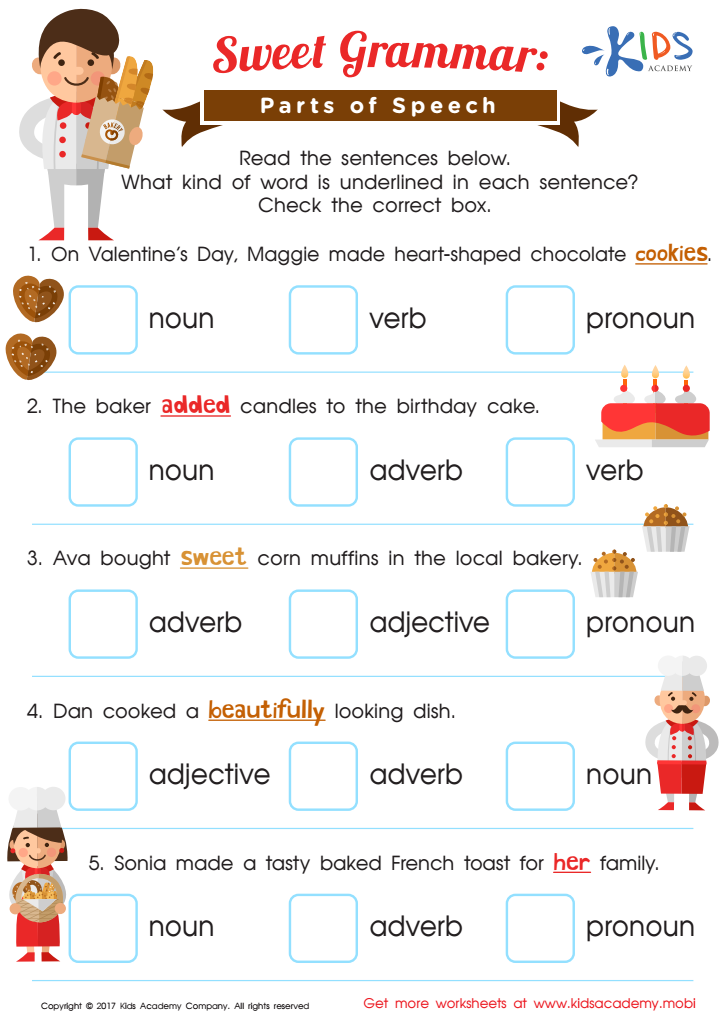

Parts of Speech Worksheet


Adjectives Worksheet
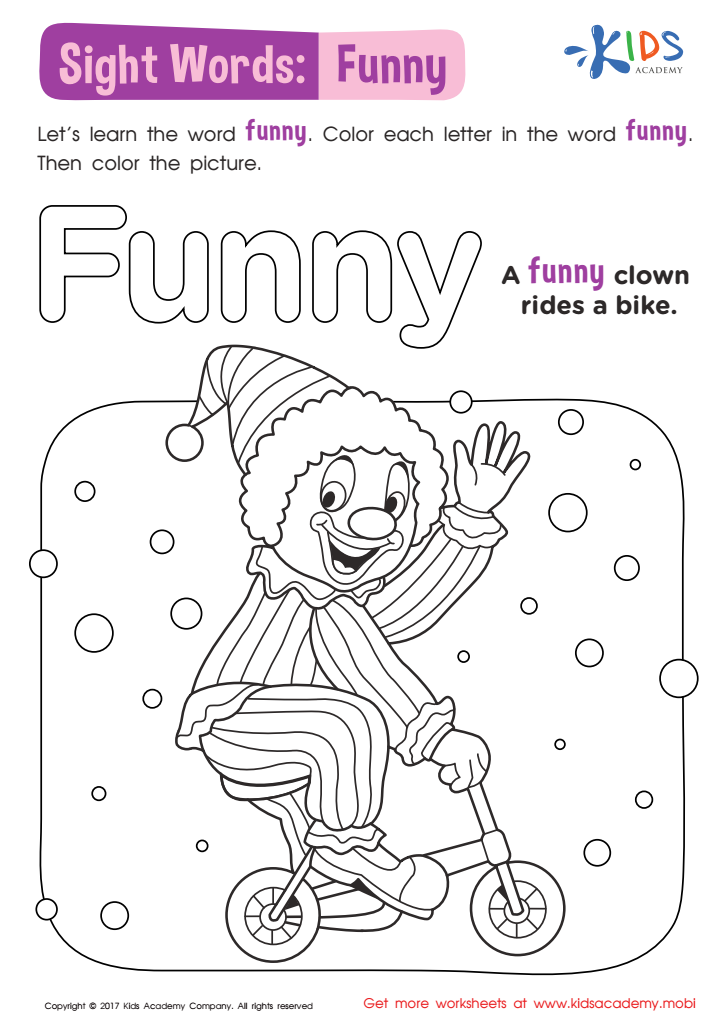

Funny Worksheet Sight Words Worksheet


Phonics and Word Recognition: Assessment 1 Worksheet
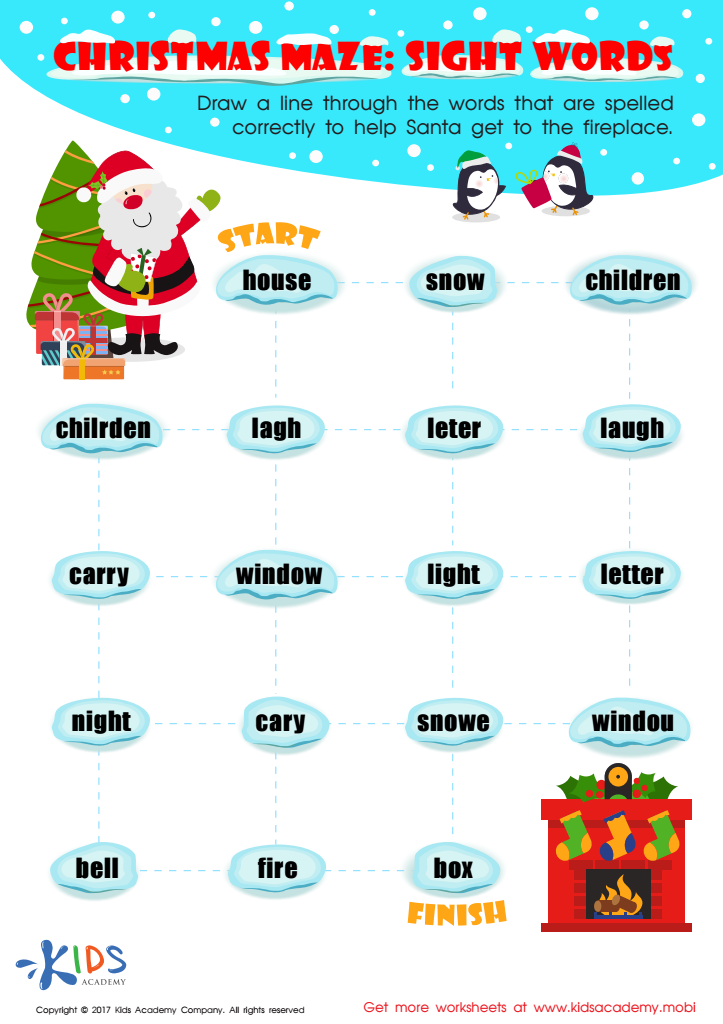

Sight Words Christmas Maze Printable
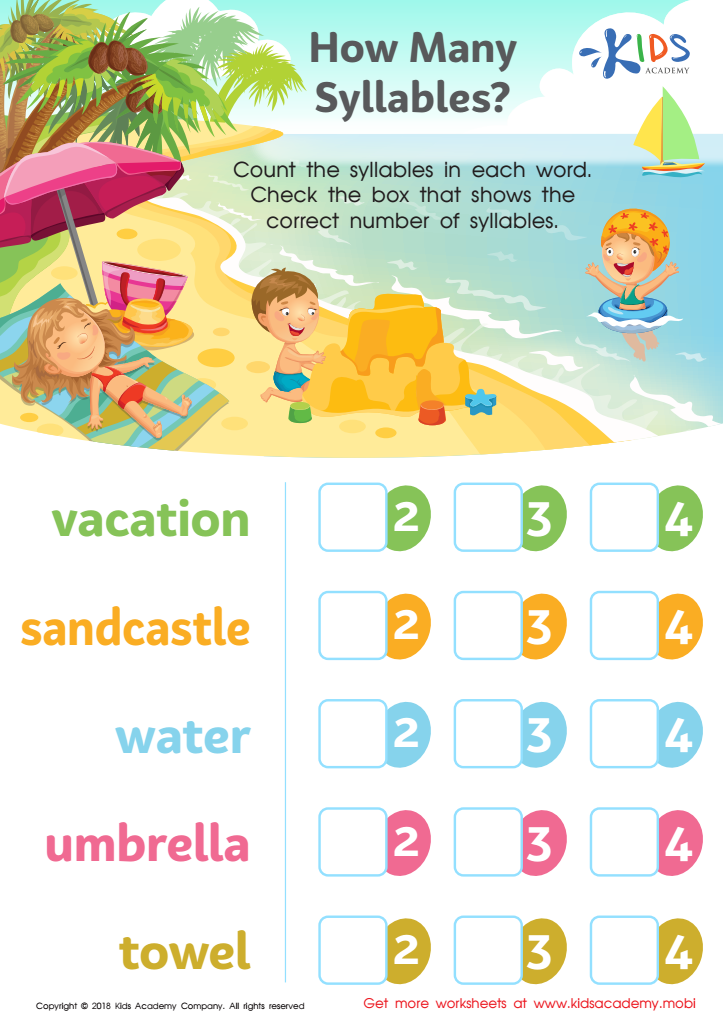

How Many Syllables Worksheet
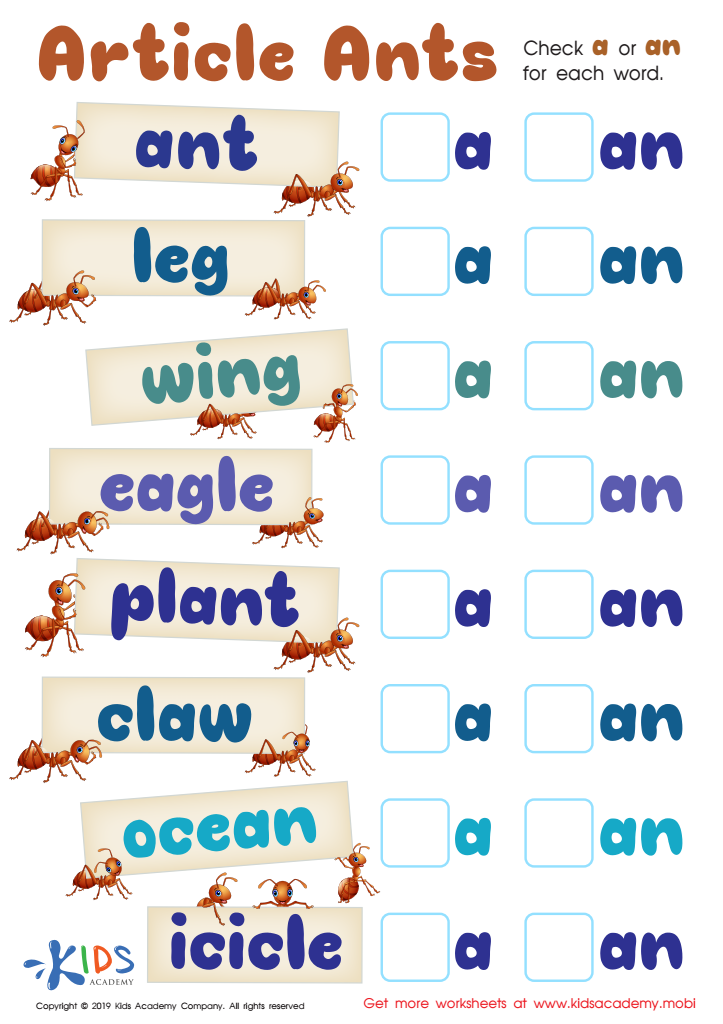

Article Ants Worksheet


Phonics and Word Recognition: Assessment 2 Worksheet
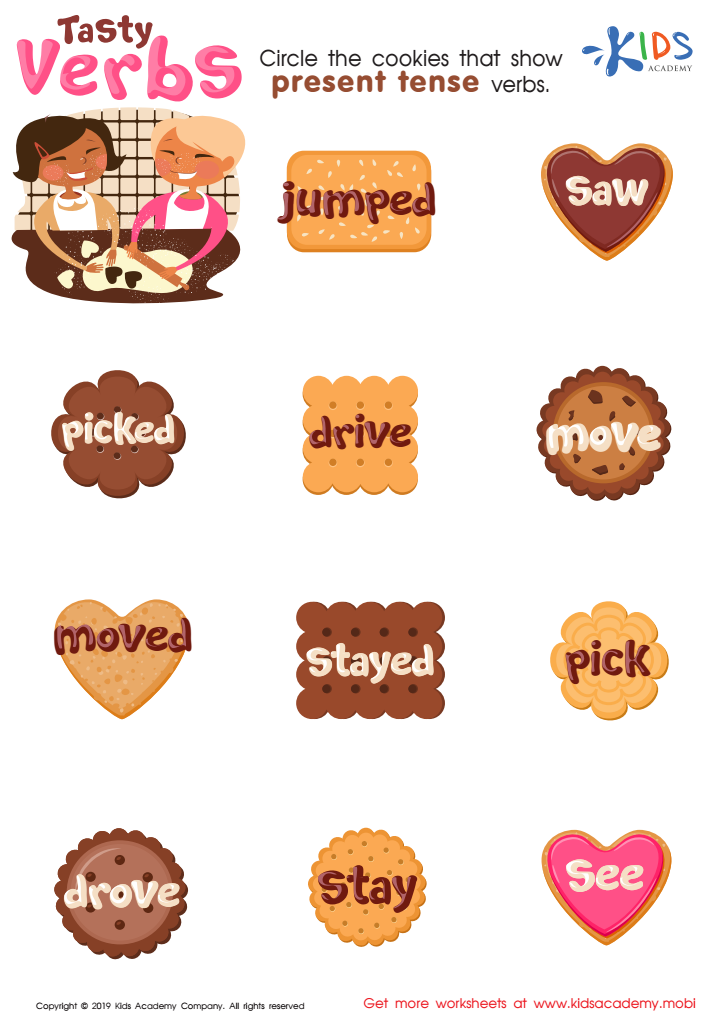

Tasty Verbs Worksheet
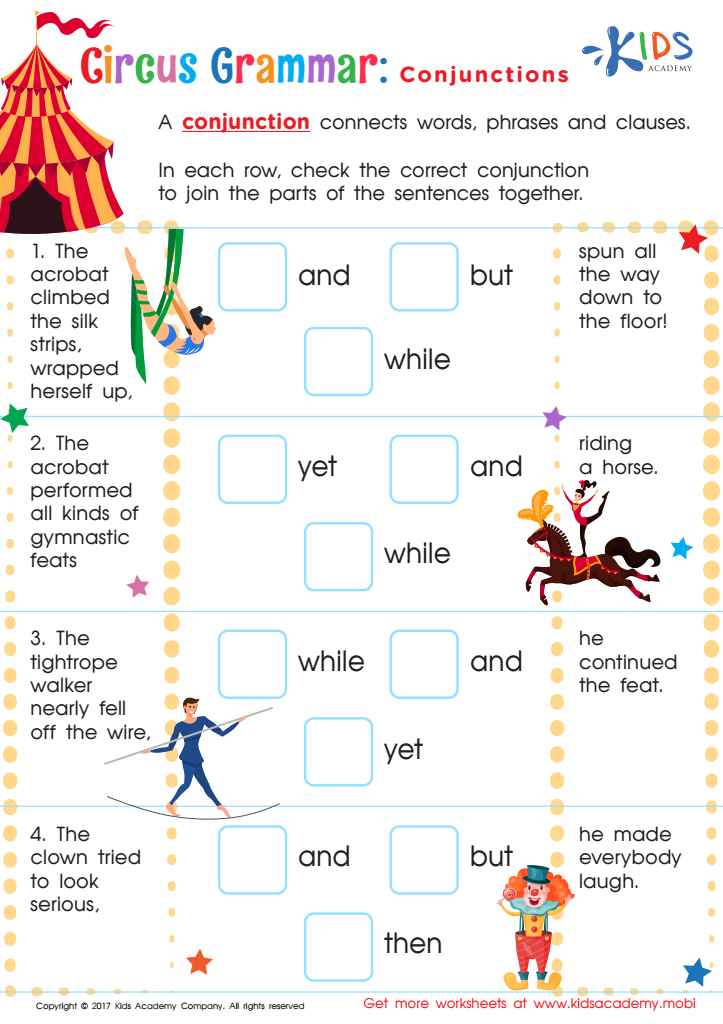

Conjunctions Worksheet
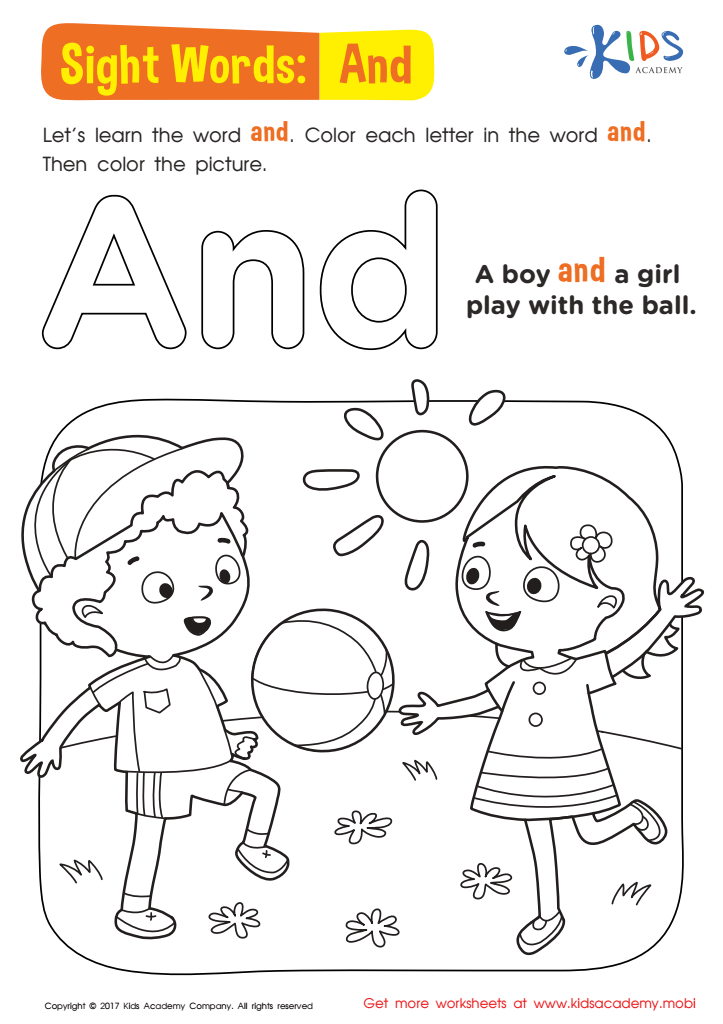

And Worksheet Sight Words Worksheet
Reading comprehension at the Grade 3 level is crucial for a child's academic success and overall development. By this age, students transition from learning to read to reading to learn. Strong reading comprehension skills lay the foundation for understanding more complex texts across various subjects, including science, math, and social studies.
Parents and teachers should prioritize reading comprehension because it enhances critical thinking, allowing children to analyze, synthesize, and connect ideas. At this grade level, students also begin to interact with different genres, expanding their vocabulary and comprehension strategies. Moreover, effective grammar instruction helps students articulate their thoughts clearly, reinforcing their understanding of sentence structure and language use.
In addition to academic benefits, reading comprehension fosters social-emotional skills. When children comprehend stories, they can relate to characters, empathize with others, and reflect on different perspectives. This, in turn, cultivates a lifelong love for reading and learning.
Ultimately, ensuring strong reading comprehension and grammar skills paves the way for future educational achievements, enhances communication abilities, and prepares children for successful interactions in their communities and beyond. Therefore, both parents and teachers play integral roles in nurturing these essential skills during this critical developmental stage.
 Assign to My Students
Assign to My Students














